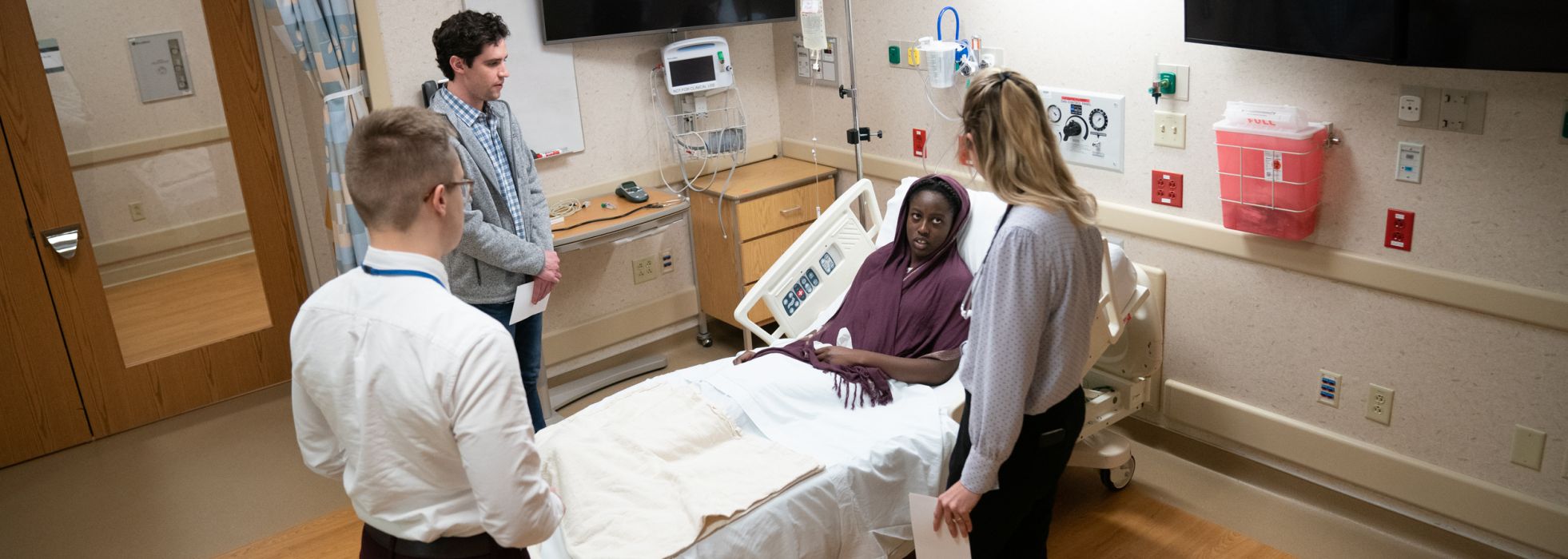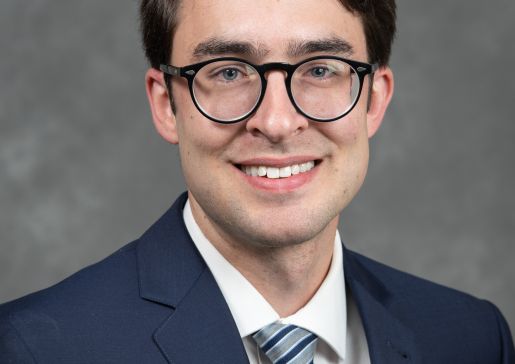About Our Program
The University of Wisconsin offers a one-year, fully funded, clinical fellowship and advanced training program in Transplant Infectious Disease (TID).
Our clinical partner, UW Health, has one of the largest solid organ transplant centers in the U.S. and a strong hematologic malignancy program.
Together, we offer world-class clinical, research, quality improvement and educational experiences.
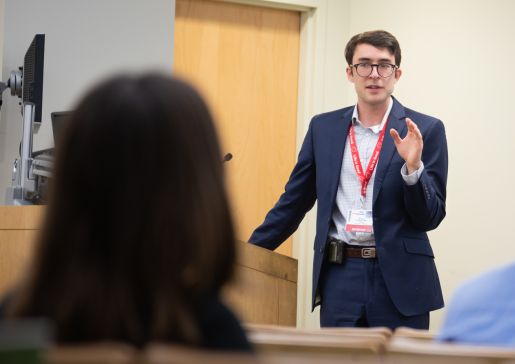
Meet Our Program Director
“I'm thrilled to share the joy of transplant infectious disease and work with each individual on their career development in this fascinating niche of ID.”
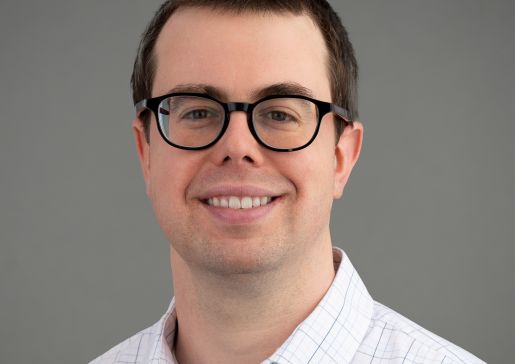
Why You'll Love Our Program
- Leading solid organ transplant center, including heart, lung, liver, kidney, pancreas and multiorgan transplants; only the third center to reach 20,000 individuals transplanted
- High-volume hematologic malignancy program, including CAR-T and stem cell transplantation
- Unparalleled research opportunities through resources at our university, clinic centers, and international research networks
- Co-located training at a top-rated VA Hospital, which is a nationally recognized leader in the care of veterans receiving solid organ transplants
- Training that’s highly individualized to your interests and needs
How to Apply
We are no longer accepting applications for the 2026-2027 academic year. Please check back for application details in the next application cycle.
Current Fellow
Medical School: Amala Institute of Medical Sciences
Residency: St. Barnabas Hospital (Bronx, NY)
Fellowship in Infectious Diseases: Memorial Sloan Kettering Cancer Center
Professional Interest: Transplant infectious disease
Administrative Staff

Program Manager
Primary contact for questions, concerns and training verifications.
Leadership
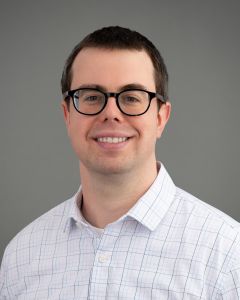
Program Director
Core Faculty
- Jeannina Smith, MD
- Elizabeth Misch, MD
- Kristine Matson, MD, MPH
- Michelle Gionet, PA
- Amy Gentry, NP
- Michael Scolarici, MD
All Division of Infectious Disease faculty and advanced practice providers
Curriculum
Didactic and Clinical Experiences
Our clinical fellowship in transplant infectious disease offers wide-ranging opportunities in direct patient care, antimicrobial stewardship, infection control, guideline development, research and quality improvement. We highly individualize your schedule; here is a general outline.
- Immunocompromised Host Consult Service: 24 weeks
- Antimicrobial Stewardship and CMV Monitoring Service: 2 weeks
- Infection Control Service: 2 weeks
- Infectious Disease Clinic: One half-day per week
- Participation in antimicrobial stewardship and infection control committees, as well as regular attendance at organ selection committee meetings
- Remaining time to be used at fellow discretion for electives, quality improvement projects, scholarship and other professional development
Scholarship and Teaching
Scholarship
Faculty mentorship will allow you to succeed in your chosen area of scholarship. The division boasts relevant expertise in drug development, mycology, Clostridioides difficile, CMV, COVID-19, population health and medical education.
- Recent highlighted publications
- Scolarici MJ, Berman LR, Callander N, Smith J, Saddler C. Infective endocarditis is rare in patients with hematologic malignancy and neutropenia. Transpl Infect Dis. 2024 Jun;26(3):e14302. doi: 10.1111/tid.14302. Epub 2024 May 18. PMID: 38761053.
- Jorgenson MR, Parajuli S, Kleiboeker HL, Felix DC, Astor BC, Saddler CM, Smith JA, Mandelbrot DA. Incidence and outcomes of fever of unknown origin after kidney transplant in the modern era. Clin Transplant. 2024 Jan;38(1):e15217. doi: 10.1111/ctr.15217. Epub 2023 Dec 11. PMID: 38078682.
- Jorgenson MR, Descourouez JL, Kleiboeker H, Goldrosen K, Schulz L, Rice JP, Odorico JS, Mandelbrot DA, Smith JA, Saddler CM. Cytomegalovirus antiviral stewardship in solid organ transplant recipients: A new gold standard. Transpl Infect Dis. 2022 Oct;24(5):e13864. doi: 10.1111/tid.13864. PMID: 35603982.
- Scolarici M, Jorgenson M, Saddler C, Smith J. Fungal Infections in Liver Transplant Recipients. J Fungi (Basel). 2021 Jun 29;7(7):524. doi: 10.3390/jof7070524. PMID: 34210106; PMCID: PMC8304186.
- Jorgenson MR, Descourouez JL, Schulz LT, Goldrosen KA, Rice JP, Redfield RR, Saddler CM, Smith JA, Mandelbrot DA. The development and implementation of stewardship initiatives to optimize the prevention and treatment of cytomegalovirus infection in solid-organ transplant recipients. Infect Control Hosp Epidemiol. 2020 Sep;41(9):1068-1074. doi: 10.1017/ice.2020.203. Epub 2020 May 27. PMID: 32456718.
- Cheng YW, Phelps E, Ganapini V, Khan N, Ouyang F, Xu H, Khanna S, Tariq R, Friedman-Moraco RJ, Woodworth MH, Dhere T, Kraft CS, Kao D, Smith J, Le L, El-Nachef N, Kaur N, Kowsika S, Ehrlich A, Smith M, Safdar N, Misch EA, Allegretti JR, Flynn A, Kassam Z, Sharfuddin A, Vuppalanchi R, Fischer M. Fecal microbiota transplantation for the treatment of recurrent and severe Clostridium difficile infection in solid organ transplant recipients: A multicenter experience. Am J Transplant. 2019 Feb;19(2):501-511. doi: 10.1111/ajt.15058. Epub 2018 Aug 31. PMID: 30085388; PMCID: PMC6349556.
Teaching
Alongside our general infectious disease fellows, you’ll have the opportunity to supervise medical students and internal medicine residents. You will present grand rounds to the division and have abundant opportunity to share interesting cases at weekly TID case conference.
For those interested in formal educator skills development, we encourage participation in our Fellow as Medical Educator (FAME) training track.
Aims
By the end of the training year, fellows should be able to:
- Conduct a thorough pre-transplant infectious disease evaluation and counsel patients on the risks of infection following transplantation
- Outline evidence-based approach to infection prevention among immunocompromised patients, including appropriate use of antibacterial, antiviral and antifungal agents and vaccination
- Manage nosocomial and surgical site infections following solid organ transplantation in close collaboration with our transplant surgery colleagues
- Diagnose and manage opportunistic infections among solid organ and stem cell transplant recipients
- Implement high yield interventions to promote antimicrobial stewardship among solid organ and stem cell transplant recipient populations
